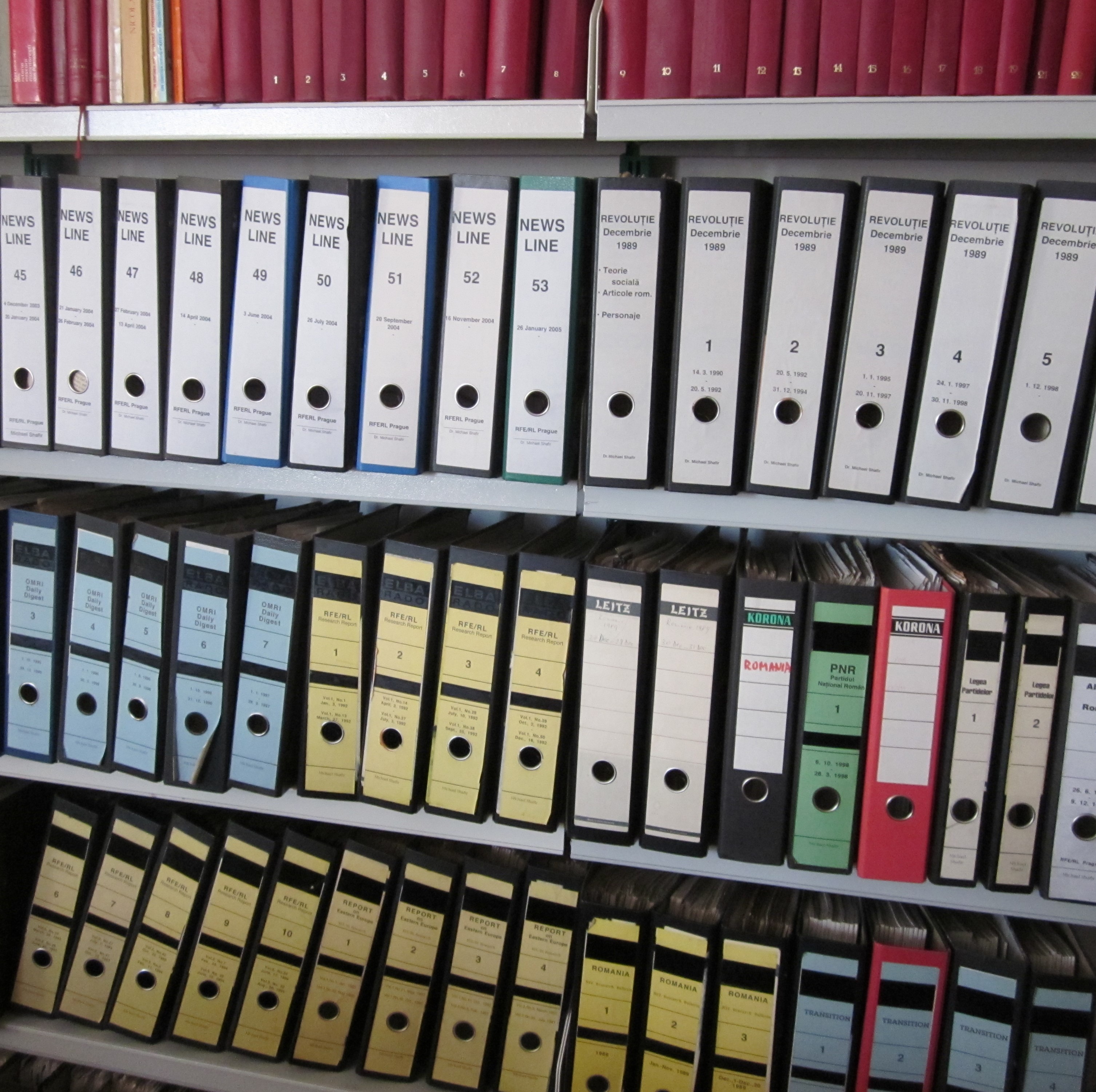The Michael Shafir Collection consists of the personal library of its founder, who selected and accumulated items while in exile, in accordance with his academic and professional interest in what was known during the Cold War as East European politics. As he held various positions in Radio Free Europe (RFE), the collection also includes many documents related to the activity of this institution, most of them from the late 1980s. Accordingly, the core of the collection consists of Western publications on the communist countries. Over time, the native country of the founder received special attention, so the items relating to the communist regime in Romania form the bulk of the collection. In particular, Shafir was interested in understanding the relationship of Romanian intellectuals with the communist regime and in explaining the weak contestation of party policies developed by this relatively obedient social group. His collection thus represents today a unique source of documentation on this controversial topic and implicitly on the problem of cultural opposition in Romania. Besides, the collection includes a number of items from the time when Michael Shafir worked for RFE, so it also represents a major source of information on the activity of the Romanian section of RFE. In particular, Shafir collected items relating to the feeble activity of the few Romanian critical intellectuals. Among these are open letters of protest sent by individuals who would become known as dissidents. Finally, given that Shafir’s interests switched from opposition under communism to nationalism and anti-Semitism in this region after 1989, a part of his collection illustrates these fields of research.
Given the profile of this collection, its content illustrates two different types of cultural activities of opposition, as well as the transnational networks of communication between them. The first type consists of individuals who carried out oppositional activities in Romania and managed to find a secure channel of transmission across the border. In particular, the collection includes copies of open letters of protest and pieces of censored literature that reached RFE. Among the authors of open letters were quite well known Romanian dissidents who formulated criticism of communist policies or monitored cases of human rights violation, such as Doina Cornea and Gabriel Andreescu. However, there is also a notable number of letters by less well-known authors, which refer to cases of infringement of religious freedom. Among the censored authors, the most known is Mircea Dinescu, who managed to send his banned poems across the borders for publication in Western media. The second type of activity refers to the support of the exile for the domestic cultural opposition. In particular, the employees of the Romanian section of RFE played an instrumental role during the 1970s and the 1980s in transmitting messages from, and news about, the few courageous Romanian intellectuals who dared to formulate public criticism of the regime through literary works or open letters. Besides, in the absence of samizdat publications, RFE provided an alternative source of information to all the citizens of Romania. The audience of this broadcasting agency was thus higher in Romania than in most of the other communist countries, as Shafir himself measured while working for RFE.
Shafir used to collect the documents and bind them at the end of the year. It is expected that some of these items will also be found in the Open Society Archives in Budapest, but given the losses of items during the repeated relocations of these collections, as well as during the transport of the Shafir Collection from Munich to Prague and then to Cluj, it cannot be estimated how many such duplicates actually exist. In any case, the documents not directly relating to Romania were donated to the library of the Open Media Research Institute, Prague in 2005, when Shafir moved to Romania. In spite of these repeated changes in location and content, the Shafir Collection is the only collection in Romania today which includes a systematic documentation on the issue of intellectuals under the Romanian communist regime. Between 2005 and 2012, the collection was stored at Babeş-Bolyai University in Cluj, following an informal act of agreement for the period while Michael Shafir taught at this institution. In 2012, he decided to officially donate the Shafir Collection to the Octavian Goga Cluj County Library in the hope of providing better storage space and accessibility for it.

